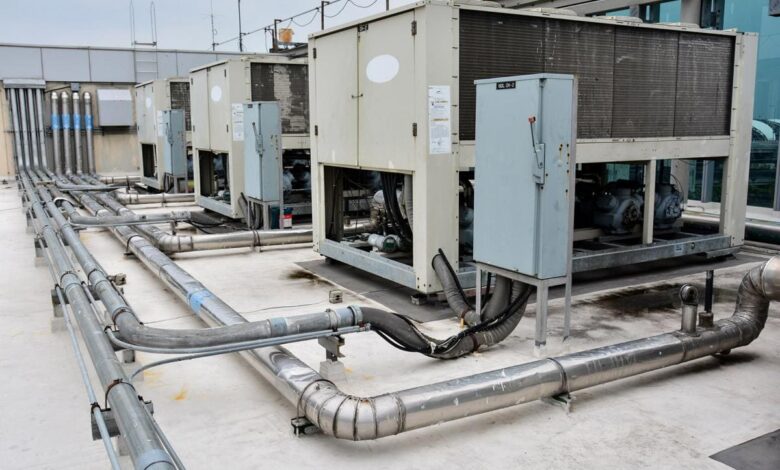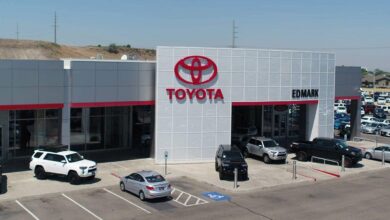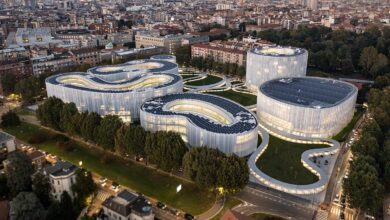The Importance of the HVAC Industry
The Importance of the HVAC Industry

When you think about modern comfort, the HVAC industry probably doesn’t come to mind immediately, but it should. HVAC, which stands for Heating, Ventilation, and Air Conditioning, plays a crucial role in our daily lives, ensuring that our homes and workplaces are comfortable and healthy environments. This article explores the profound importance of the HVAC industry, touching on its role in comfort, energy efficiency, health, and the economy.
What is HVAC?
Definition and Components
HVAC systems are intricate networks designed to manage the indoor environment. They control temperature, humidity, and air quality to provide a comfortable and safe indoor climate. Key components include furnaces, air conditioners, heat pumps, ductwork, and ventilation systems.
History of HVAC
The concept of HVAC has been around for centuries, evolving from simple heating methods to sophisticated systems powered by modern technology. The journey began with basic fireplaces and has advanced to the point where we now have smart HVAC systems that can be controlled remotely.
The Role of HVAC in Comfort
Temperature Control
At its core, HVAC ensures that indoor temperatures are kept at a comfortable level, regardless of the weather outside. This is particularly vital in regions with extreme climates.
Air Quality Management
HVAC systems are essential in filtering and purifying indoor air. They remove contaminants such as dust, pollen, and other allergens, ensuring the air we breathe is clean.
Humidity Control
Maintaining the right humidity level is crucial for comfort and health. HVAC systems help regulate humidity, preventing issues like mold growth and excessive dryness.
Energy Efficiency and Sustainability
Advances in HVAC Technology
The HVAC industry has made significant strides in energy efficiency. Modern systems are designed to consume less energy while providing the same level of comfort. Innovations such as variable speed motors and smart thermostats contribute to these advancements.
Energy-Saving Tips
To maximize energy efficiency, consider regular maintenance, using programmable thermostats, and ensuring your home is well-insulated. These steps can significantly reduce energy consumption and lower utility bills.
Environmental Impact
HVAC systems can have a significant environmental impact due to their energy use. However, with the push towards greener technologies, newer systems are becoming more eco-friendly, utilizing renewable energy sources and reducing carbon footprints.
Health Benefits of HVAC
Air Filtration Systems
High-quality air filtration systems in HVAC units are vital for removing pollutants and allergens from the air, contributing to better respiratory health.
Prevention of Mold and Mildew
Proper humidity control and ventilation prevent the growth of mold and mildew, which can cause various health issues.
Reducing Allergens and Pollutants
By filtering out allergens and pollutants, HVAC systems help reduce the incidence of allergies and respiratory conditions, promoting overall well-being.
Economic Impact of HVAC
Job Creation
The HVAC industry is a significant employer, providing millions of jobs worldwide in manufacturing, installation, maintenance, and sales.
Market Size and Growth
The HVAC market is continuously growing, driven by the increasing demand for energy-efficient systems and the need for improved indoor air quality.
Cost Savings for Businesses and Homeowners
Investing in modern HVAC systems can lead to substantial cost savings over time, thanks to lower energy bills and reduced maintenance costs.
Innovations in the HVAC Industry
Smart HVAC Systems
The advent of smart technology has revolutionized the HVAC industry. Smart thermostats and HVAC systems can be controlled remotely, allowing for greater energy efficiency and convenience.
Renewable Energy Integration
Integrating renewable energy sources like solar and geothermal with HVAC systems is becoming more common, promoting sustainability.
Future Trends
The future of HVAC looks promising with trends such as AI integration, more efficient heat exchangers, and the continued push towards sustainability.
Challenges Faced by the HVAC Industry
Regulatory Issues
The HVAC industry faces numerous regulations aimed at improving energy efficiency and reducing environmental impact. Staying compliant with these regulations can be challenging.
Technological Advancements
Keeping up with rapid technological advancements requires significant investment in research and development.
Workforce Training
As HVAC systems become more complex, there is a growing need for skilled technicians who can install and maintain these advanced systems.
Importance of Maintenance and Regular Servicing
Benefits of Regular Maintenance
Regular maintenance of HVAC systems ensures optimal performance, extends the system’s lifespan, and reduces the likelihood of costly repairs.
Signs Your HVAC Needs Servicing
Unusual noises, reduced airflow, and inconsistent temperatures are common signs that your HVAC system needs servicing.
DIY Maintenance Tips
Simple tasks like regularly changing filters, keeping the outdoor unit clean, and ensuring proper airflow can help maintain your HVAC system.
HVAC and Climate Change
Contribution to Carbon Footprint
HVAC systems contribute to the carbon footprint through their energy consumption. However, advancements in technology are helping to reduce this impact.
Role in Mitigating Climate Change
Energy-efficient HVAC systems and the integration of renewable energy sources play a crucial role in mitigating climate change.
Sustainable Practices
Adopting sustainable practices, such as using energy-efficient systems and regular maintenance, can significantly reduce the environmental impact of HVAC systems.
Choosing the Right HVAC System
Factors to Consider
When choosing an HVAC system, consider factors like the size of your home, climate, energy efficiency, and budget.
Types of HVAC Systems
There are various types of HVAC systems, including central air conditioning, ductless mini-splits, heat pumps, and furnaces. Each type has its advantages and is suited to different needs.
Installation Tips
Proper installation is key to the efficient operation of an HVAC system. Ensure it’s done by a qualified professional and follow the manufacturer’s guidelines.
Case Studies and Real-World Applications
Success Stories
There are numerous success stories where modern HVAC systems have significantly improved comfort and efficiency in both residential and commercial settings.
Residential vs. Commercial Applications
HVAC systems vary greatly between residential and commercial applications, with each sector having its unique requirements and challenges.
Lessons Learned
From these case studies, it’s clear that regular maintenance, proper installation, and choosing the right system are crucial for maximizing the benefits of HVAC.
Conclusion
The HVAC industry is indispensable in our quest for comfort, health, and sustainability. It touches every aspect of modern living, from ensuring we breathe clean air to reducing our carbon footprint. As technology continues to advance, the importance of HVAC will only grow, making it an essential component of our daily lives.



